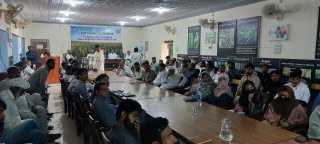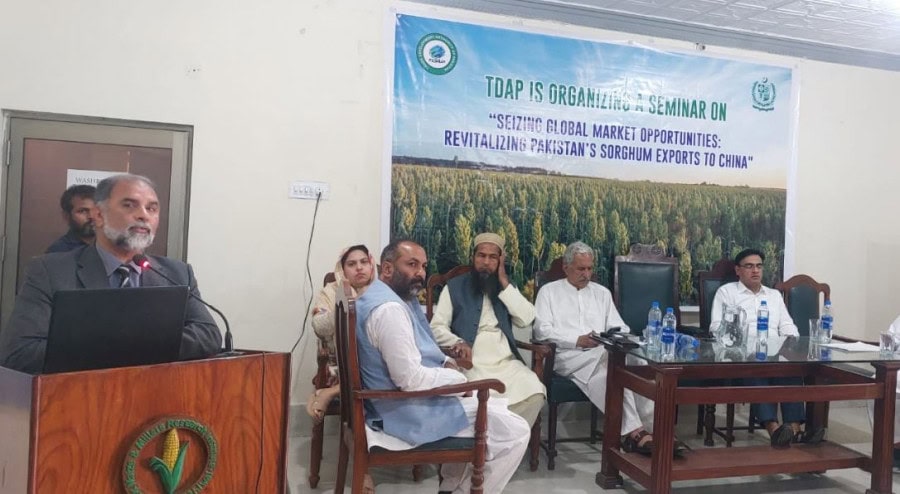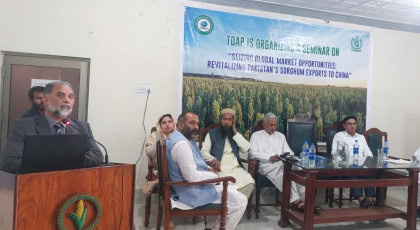SAHIWAL – The Trade Development Authority of Pakistan (TDAP) organized a seminar titled “Seizing Global Market Opportunities: Revitalizing Pakistan’s Sorghum Exports to China at the Maize and Millet Research Institute, Sahiwal.
The event brought together agricultural scientists, trade experts, farmers, and policy stakeholders to explore Pakistan’s opportunity to enter the Chinese sorghum market, which imports nearly 8 million tons annually.
Moderated by Ms. Hina Tahir, Deputy Director (AFD), TDAP, the seminar aimed to address how Pakistan can capitalize on recent trade disruptions between China and the U.S. to position itself as a reliable supplier. Farmers from across the region attended in large numbers, reflecting growing interest in sorghum as a high-value export crop.
Mr. Athar Hussain Khokhar, Director General (AFD), TDAP, in his welcome address, stressed the urgency of tapping into the Chinese market amid the 81.8% decline in U.S. sorghum exports. “With targeted interventions and farmer support, Pakistan can transform sorghum into a $500 million export commodity within a decade,” he asserted, highlighting the crop’s viability in Punjab’s marginal lands, including Thal and Cholistan.
Dr. Qamar Shakil, Principal Scientist at Ayub Agricultural Research Institute, focused on enhancing production technology and improving market access to align with Chinese import standards.
Mr. Muhammad Saeed, Director of the Maize & Millet Research Institute, Sahiwal, discussed current sorghum production trends and the need for better seed supply systems to support expansion in marginal regions like Thal and Cholistan.

Mr. Ghulam Qadir, Trade & Investment Counsellor from Beijing, provided valuable insights into China’s growing demand for sorghum, especially for livestock feed and its $100 billion baijiu industry.
He highlighted how Pakistan can benefit from China’s shift to diversify its import sources in response to trade tensions with the U.S. Ch. Shahbaz Akhtar, Director of Agriculture Extension in Sahiwal, shared best practices for on-ground extension services and farmer mobilization to enhance local production capacity.
Participants appreciated TDAP’s efforts in organizing the awareness seminar, recognizing it as a timely initiative to educate stakeholders on the global potential of sorghum exports. Farmers, researchers, and policymakers alike lauded the platform for fostering collaboration and knowledge-sharing, paving the way for Pakistan to emerge as a key player in the international sorghum marketparticularly in light of shifting trade dynamics with China.



















